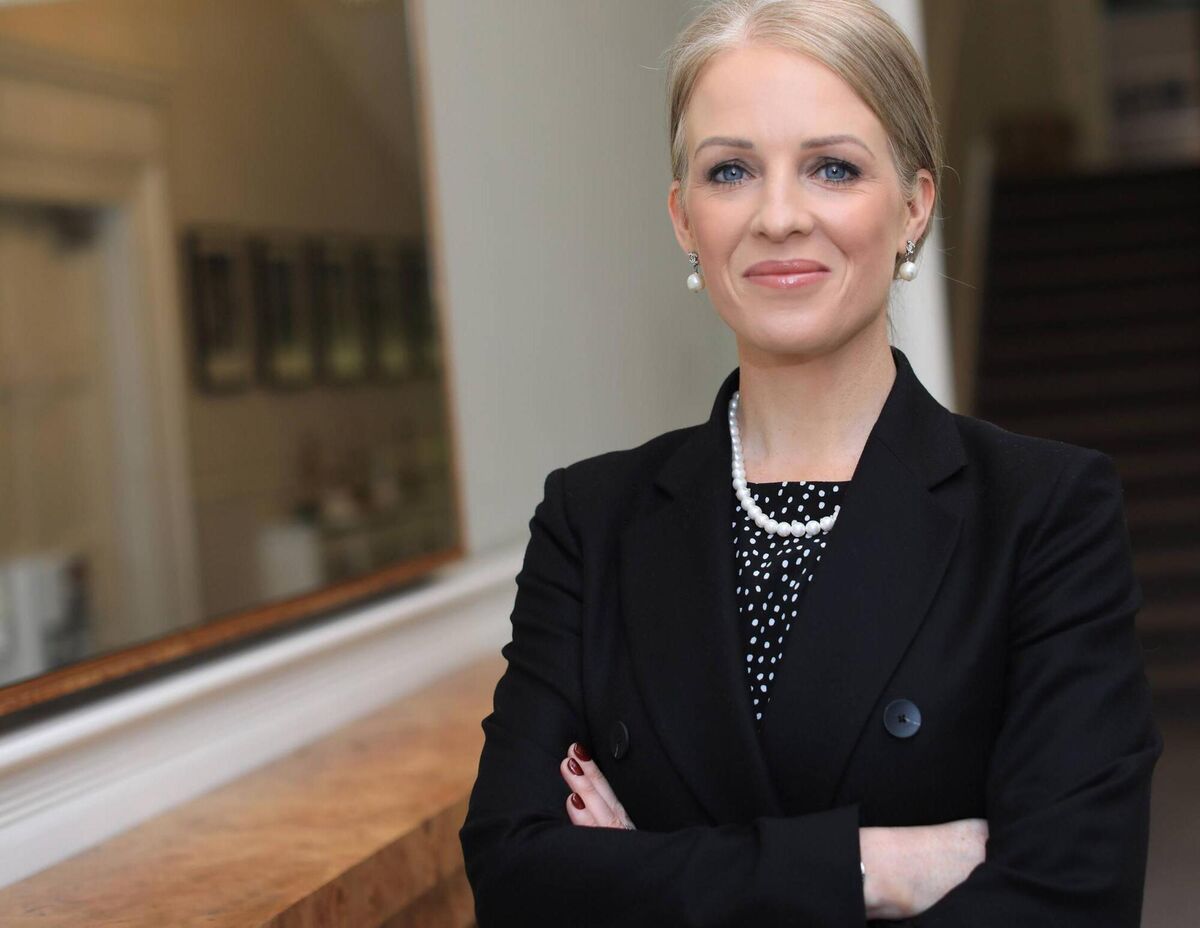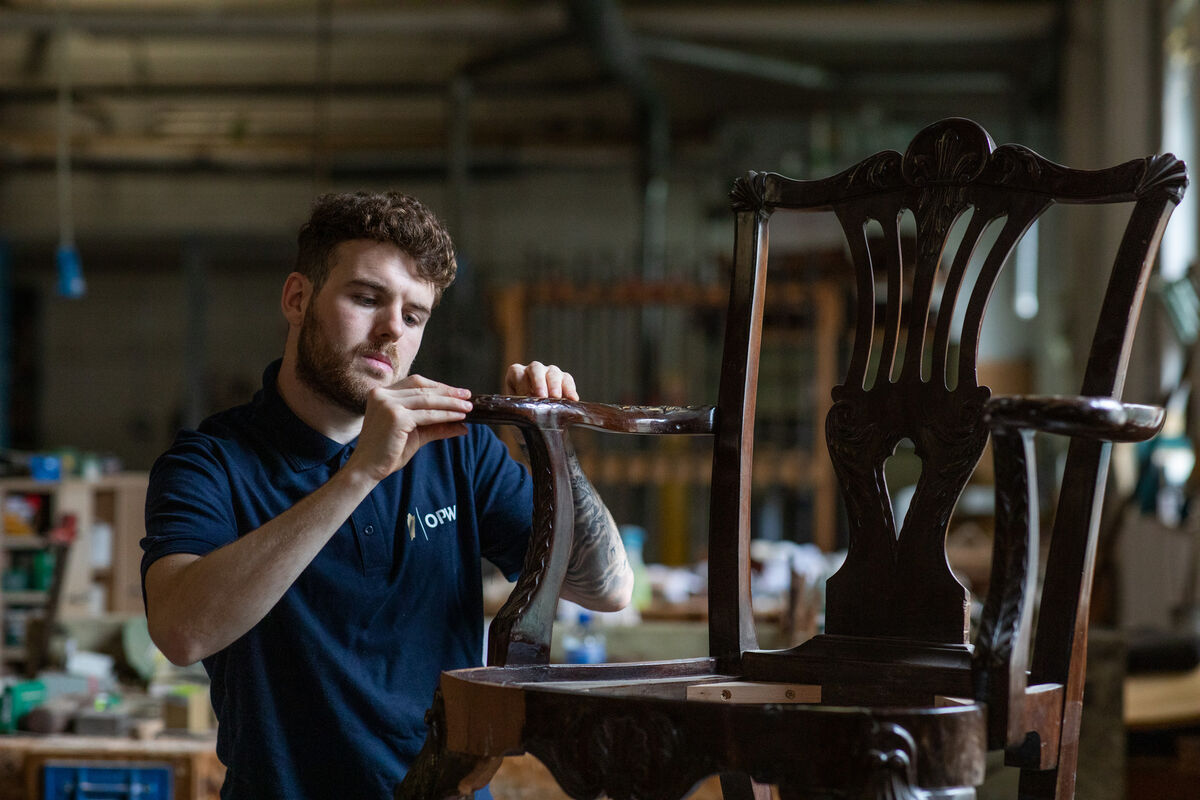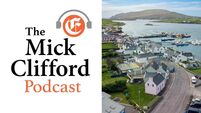Skills shortage: Irish employers urgently need more trained and experienced workers

Writing in these pages just before the general election of February 2020, economist Jim Power highlighted the remarkable recovery in the labour market since 2012.
Unemployment was down below 5%, a record number of people in the economy were working, and Ireland was inching towards full employment again. But it wouldn’t be enough for the party in power to boost its support.
"Economic growth and full employment are clearly not enough to satisfy a demanding electorate that is now being promised all manner of treats,” Mr Power predicted. And he wasn’t wrong. Sinn Féin went on to collect the largest proportion of first preference votes as Fine Gael lost seats and went on to form a coalition with Fianna Fáil and the Greens.
To read Ciarán Nugent's analysis of the impact on recruitment of low pay and precarious employment, click here.
Fast forward two years and again the talk is of a move towards full employment in the coming years.
The ESRI has said that unemployment will return to pre-pandemic levels by the end of the year. The Central Bank has said up to 167,000 jobs could be created across the Irish economy over the next couple of years.
Economic growth projections also look positive now coming out of two years of Covid-19. But what’s happened in the last two years is the largest upheaval to Irish society — and the economy — in living memory.
The latest update from the Central Statistics Office (CSO) had the unemployment rate at 5.3% in January. During the lockdown of January 2021, taking into account unemployment due to Covid-19, the unemployment rate was a mammoth 27.1%.
As the economy has reopened, jobs are certainly coming back. But different sectors are sounding warning notes that something fundamental has changed in the jobs market in Ireland.
In launching its plans for the tourism industry earlier this month, Fáilte Ireland said that three in ten businesses in hospitality and tourism believe they face closure if recruitment and retention challenges are not resolved.
Fáilte Ireland boss Paul Kelly said that the pandemic has had a “profound impact” on the industry’s skill base and there’d been a “mass exodus of workers into other industries”.
This sentiment is one shared across many industries, and not unique to Ireland. When pubs were permitted to reopen briefly in December 2020 before swiftly closing again due to a Covid-19 surge, a commonly-reported problem among publicans was a difficulty in getting staff.

For businesses in hospitality — as with arts and events and other sectors that were shut for long periods of time — many employees didn’t wait around for their job to come back. They went and got another one. Often in a different industry.
In some cases, it meant that years or perhaps decades of experience was lost to that industry when these people went elsewhere, causing a “brain drain”. In other cases, skilled workers in tech or pharma who had come to Ireland for work may have assessed their options upon the arrival of Covid-19 and decided to go abroad.
When the Government announced its new retrofitting scheme earlier this month, there were warnings about the shortage of skilled construction workers needed to carry out the works.
Shortages are also being seen in what might be considered the most niche of sectors. The sports website The Athletic reported last week that part of the reason for increased trouble at football grounds in England this season was due to the departure of many stewards from the industry, who were experienced at preventing and handling trouble at matches.
At home, businesses looking to recruit skilled workers are finding that those with the skills here are often in high demand. A recent statement from IrishJobs.ie referred to it as “the war on talent” in 2022.
Lorna Conn, CEO of recruiters Cpl, said that as companies have emerged from the pandemic “we can see there’s a shortage of skills in Ireland across every sector — and this skills shortage on the island of Ireland is contributing to wage inflation across the board".
This sentiment was echoed by Andrew Webb, chief economist at Grant Thornton, who said recruitment issues are happening “right across the economy at the minute”. He said:
The department’s occupation list for critical skills allows people to apply for work permits in Ireland through a specific scheme if they have such skills. And it is indeed a long list.
There are 20 broad sectors on that list with specific jobs within each sector. The list has everything from chemical scientists and mechanical engineers to web designers and nurses.
Solas, which manages a range of further education and training programmes, conducted a recent survey on sectors reporting skills shortages and found that almost half of IT and engineering firms had difficulty filling roles. A further 26% in construction said it was difficult to fill certain roles.
Its report said: “Certain vacancies continue to remain difficult to fill as many companies are looking for two key elements when hiring: candidates with specific industry skills and relevant experience.
“Employers continue to respond to the increasing difficulty in attracting skilled candidates by accepting those with less experience.”
Lorna Conn said it’ll be through a mixture of training and inward migration that many posts are filled in the coming year.

“There were obviously travel restrictions during Covid which would have hampered the ability for people to make that move here,” she said. “And with remote working, some companies would’ve looked towards meeting those needs outside Ireland.”
CSO figures show that net inward migration among non-Irish nationals in the year to April 2021 was 86% down on the 12 months prior, suggesting that far fewer non-Irish nationals came to live and work in the country during the first year of the pandemic.
“That whole global mobility piece [from the pandemic] has contributed to candidate shortages on the island of Ireland,” Ms Conn said, adding that a more streamlined visa application system for workers in the sectors which need workers would be really beneficial.
“A fast-track visa process, that was still robust and proper, could really help in this environment,” she said. “We think there’s such a demand right now that something could be done there," she said.
Andrew Webb said that addressing the issues around skill shortages in Ireland won’t be “an easy one to fix overnight” and that the impacts on a business even in the short term could be severe.
“Take a firm like ours,” he said. “If I’m two people down [on my team]... a company might reach a point where they have to say no [to business].
“And where you can see there’s a strong pipeline of opportunity and you can’t fulfil it. It’s the same in any industry. And you can see the frustration some would have.”
With the competition for talent across industries described as “fierce”, companies are having to expand what they can offer beyond just a salary to try to secure workers.
Ms Conn said: “When it’s coming to recycling from the existing workforce, it’s prompted companies to become much better at investing more in their own brand and the initiatives they can offer:
Andrew Webb added: “You’ve heard talk of the ‘great resignation’, but I’d call it the ‘great reshuffle’. Maybe if someone was in a sector perceived to have anti-social hours, they’ve had found opportunities in other sectors in the last two years.”
He said that, beyond just the job itself, other factors would come into play when talking about attracting workers to Ireland. The high cost of housing is one such factor that may make the country less attractive to come to in 2022.
For those who are here, Mr Webb said it’s certainly a time for training and investment in different ways of working to ensure the pipeline remains flowing right through for companies when recruiting in 2022:
“I’ve seen examples where companies are offering training to people to rapidly address short-term challenges. They’re really forensically looking at what they need, and honing in on that as a training piece for workers. Once they have that training, they can learn a lot in the job itself.”
For sectors that faced financial ruin during the blight of the pandemic, flexibility will be key as they seek to get the workers that’ll put them on the path to growth again.
As for filling those roles, education and training will play a vital role. In terms of education, Ireland has never had more university graduates. 2020 saw the highest single number of graduates in a year with 81,461 people graduating from either an undergraduate or a postgraduate degree.
The largest number of these (20,202) were in business, administration or law courses. This was followed by health and welfare (13,212), arts and humanities (9,017) and engineering, manufacturing and construction (8,895).
Over 5,600 of these were in ICT courses, with more than 6,700 in science-related courses.
As pointed out in the recent Solas survey, companies are seeking both the proper education and relevant experience for roles. For graduates, the only way of getting that experience is doing the job itself so it can leave a gap that is difficult to overcome.
Solas said: “The results of the survey [...] indicated that almost three quarters of the vacancy responses were a combination of very and too difficult to fill (64% of vacancies were considered very difficult to fill, with a further 8% too difficult to fill).
“The reason given for the majority of these difficulties was an insufficient number of skilled candidates available within the Irish labour market.”
It also noted that companies were being flexible in the years of experience they required for roles with over half of vacancies needing three years or less experience.
Separately, during Simon Harris’ tenure as minister in the newly-formed Department of Further and Higher Education, he’s been pushing apprenticeships as a means to kickstart a career outside of the traditional academic route.

Just 5,326 people registered for an apprenticeship in 2020, which was down from 6,177 the year before. However, the number of registrations improved last year to 8,607.
Under a five-year plan, the Government wants 10,000 people signing up to apprenticeships each year. Outside of traditional apprenticeships like plumbing and accounting, there are a range of newer offerings such as wind turbine maintenance and aircraft asset management.
Solas offers a range of courses from apprenticeships to upskilling. It has also helped to develop two new training courses for the hospitality sector to help boost retention and career progression.
In a statement, a spokesperson for the Department of Further and Higher Education said: “Providing highly subsidised training to upskill team leads and supervisory management staff, these programmes will maximise the ability to deal with the new business environment, its challenges and opportunities.”
In a detailed statement on the training and education opportunities on offer, the spokesperson outlined how there are a large number of courses available ranging from some that last just a few days to longer-term training.
These can be for existing workers to upskill or a new training path for people starting off or looking to change careers.
“There are a range of options for people who wish to train in retrofitting,” the spokesperson said, giving an example.
“This is a blended model with two days online and one day in the training centre. A pilot virtual reality programme is in development also to support NZEB/retrofit training. These courses are provided through Skills to Advance. They are free, flexible, and fast.
“Longer training programmes of one to three weeks will be offered to existing skilled, semi-skilled workers, construction professionals, and new entrants to the construction/retrofitting sector in retrofitting external cladding, attic & wall insulation along with other areas that will be identified by the training providers.”
It also pointed to apprenticeships under development for bar managers and executive chefs to supplement the four existing apprenticeships in the hospitality and food sector.
By bringing all of these training courses on stream and ensuring they are utilised to their fullest capacity, it is hoped that this can go some way to addressing the issues around the skills shortage.
The spokesperson added: “Addressing skills needs across the Irish economy is a priority for this department and Minister Harris.”
The pharmaceutical industry employs around 25,000 people in Ireland. During the early days of Covid, those who worked in lab-based settings were still hitting the road to go to work every day while many others were either working from home or not working at all if their sector was forced to shut.

Under the Department of Enterprise’s occupation list for critical skills, it includes a number of roles within this industry.
It includes chemical, physical, and biological scientists in manufacturing, product development, analytical development, clinical co-vigilance or biotechnology or those with related specialist skills or experience.
It also includes medical laboratory scientists, so it covers a broad range of the pharmaceutical process.
Analysis from Cpl Life Sciences and Vacancysoft found that life sciences firms in Ireland recorded over 3,400 vacancies in 2021, which was 14.9% higher than 2020 and 4.5% than pre-pandemic levels.
The most sought-after vacancies were in quality assurance roles, followed by research and development experts and then drug manufacturing professionals.
In a statement, the Irish Pharmaceutical Healthcare Association said there was a wide skill base needed for the industry that goes beyond the sciences and also includes things like regulation, licensing, sales and marketing, and policy and reputation. A spokesperson said:
“Sites tell us that finding enough people with the right skillset is challenging.
“For graduates, there are lots of study and training programmes out there that cover a range of industry areas. Our industry has strong collaborative links with higher education institutions and research centres so that the ecosystem stays connected and programmes and research activities are finely tuned to what is trending.”
At the end of 2021, the IDA said that, despite the challenges faced during the pandemic, foreign direct investment had come through “largely unscathed” from Covid-19.
It put this down to sectors it had targeted over the past decade, including pharma.
Another sector closed during parts of the pandemic was construction. As that sector rebuilds, there’s a shortage of skilled people such as project site managers and quantity surveyors, according to Ms Conn.

She said Ireland was one of the only countries to close its construction sector for large swathes during Covid, which led to mobility outward to other countries for workers with such skills.
Engineering is also feeling the pressure, with a high demand across all of its disciplines according to Ms Conn.
It is something the industry is itself very aware of. In launching its new strategy last week, Engineering Industries Ireland chair Barry Morrissey said that the skilled labour market is “overheating” at the moment. He said:
As part of its strategy for the coming years, it is aiming to provide opportunities for masters and PhD students to drive new skills in the workplace, deliver upskilling programmes for technicians and engineers and develop shared learning platforms in companies.
“If we get this right, we can look forward with renewed confidence,” the strategy added.
The words ‘HSE’, ‘recruitment’, and ‘challenges’ appear very often together. Even before the pandemic, recruiting workers for the health service was always a challenge.

Prior to 2020, a freeze on healthcare recruitment left many roles unfilled for long periods and teams within the health service short of required manpower.
During Covid-19, recruitment was said to have ramped up and the ‘Be On Call for Ireland’ initiative, which gained notoriety at the time, had tens of thousands of applicants but filled just several hundred posts.
The report last week on so-called fake targets discussed by Department of Health officials threw the spotlight on it all over again.
In the Dáil, Labour Party leader Alan Kelly said that officials in the department referred to the idea of recruiting 10,000 people in 2022 as “batshit”.
Taoiseach Micheál Martin said that only around 5,500 staff would be hired this year despite funding being in place for 10,000. Mr Martin said the HSE must recruit 9,500 a year just to “stand still” as that number of staff go in different directions and into other careers. He said there was a net gain of 12,500 staff over the past two years which was a “record high number of recruitments”.
CEO Paul Reid said that while the HSE was “striving” to meet the 10,000 target, it was unlikely it would be met: "The reality, as we know what the market is, there’s a big global demand," he said.
It is entirely unsurprising to find an array of healthcare positions on the critical skills list of the Department of Enterprise. These include doctors, nurses, midwives, radiographers, pharmacists, and dieticians.
Nursing Homes Ireland also warned last month that a staffing emergency will have serious consequences. Four in five nursing homes said it was “extremely difficult” or “ impossible” to hire staff, according to its CEO, Tadhg Daly.
Mr Daly said that nursing home staff were leaving to join the HSE and that State intervention was needed to ensure 24/7 care for residents at private and voluntary homes.These problems in this and other healthcare sectors are unlikely to disappear anytime soon.
The Fáilte Ireland survey (see main article above) painted a picture of a hospitality and tourism industry struggling to fill its roles.

In a survey of companies and professionals in the industry, four fifths of them said issues with staffing are affecting the customer experience, while a similar number said they’ve reduced capacity or trading hours over recruitment.
As the tourism and hospitality industry attempts to pick up the pieces after facing large periods of closure over the past two years, it is estimated that there are over 40,000 vacancies across these sectors.
It is proving hardest to recruit chefs, with 88% of survey respondents reporting “considerable difficulty” in recruiting them. A further 70% say they’ve considerably difficulty recruiting bar service staff.
It’s also proving difficult to retain staff, as just 18% said they’d little or no difficulty in retaining chefs, waiters/waitresses, and bar service staff.
The results of this survey have echoed concerns raised across the industry in terms of recruiting and retaining staff.
Seen as an acute problem in the industries that were among those closed the longest during Covid, there has been a fear that many experienced staff would have gone elsewhere and left the sector altogether.
In a bid to provide upskilling in the industry, Fáilte Ireland is offering an “excellent employer programme”.
This will grant them access to HR and people-management training, as well as an opportunity to become certified as a “top employer”.
On its online learning hub, it has a number of courses in areas such as finance, sales and marketing, and customer service to offer businesses in this field.
Laura Conn said: “I think hospitality is a real pressure point. I do know if companies can’t have staff to turn on the lights and serve their customers, it is a genuine threat.
She also pointed to a form of fast-track visa application system that could help fill skills hap in the likes of hospitality in the short-term as that sector recovers from the effects of the pandemic.
For Laura Conn, CEO of Cpl, it is in IT and tech where the skills shortage is being particularly felt.

“This sector is particularly buoyant,” she said. “We’ve seen it’s taking a longer time to fill roles and higher pay rates across all job categories in recent times.”
She said demand is really high for the likes of software developers, mobile web developers, IT engineers, QA specialists, software testers, IT developers, and cybersecurity:
People working in ICT (information and communications technology) feature in the Department of Enterprise’s list of those eligible for the critical skills employment permit if they have the required expertise.
Perhaps tellingly, after listing a number of specific roles such as listed above, it adds a final criterion in this section entitled “all other ICT professionals not elsewhere classified”.
The message here is that if you have ICT skills, you have skills critical to the Irish economy.
Lahinch-based employee management software firm HR Locker recently noted that the highest proportion of vacancies posted on its Hire site were in ICT, and the talent shortage in this sector was “apparent”.
It said: “Sourcing IT professionals remains one the greatest challenge for employers, with the average time to fill sitting at 30 days, compared to 22 days for sales roles.”





